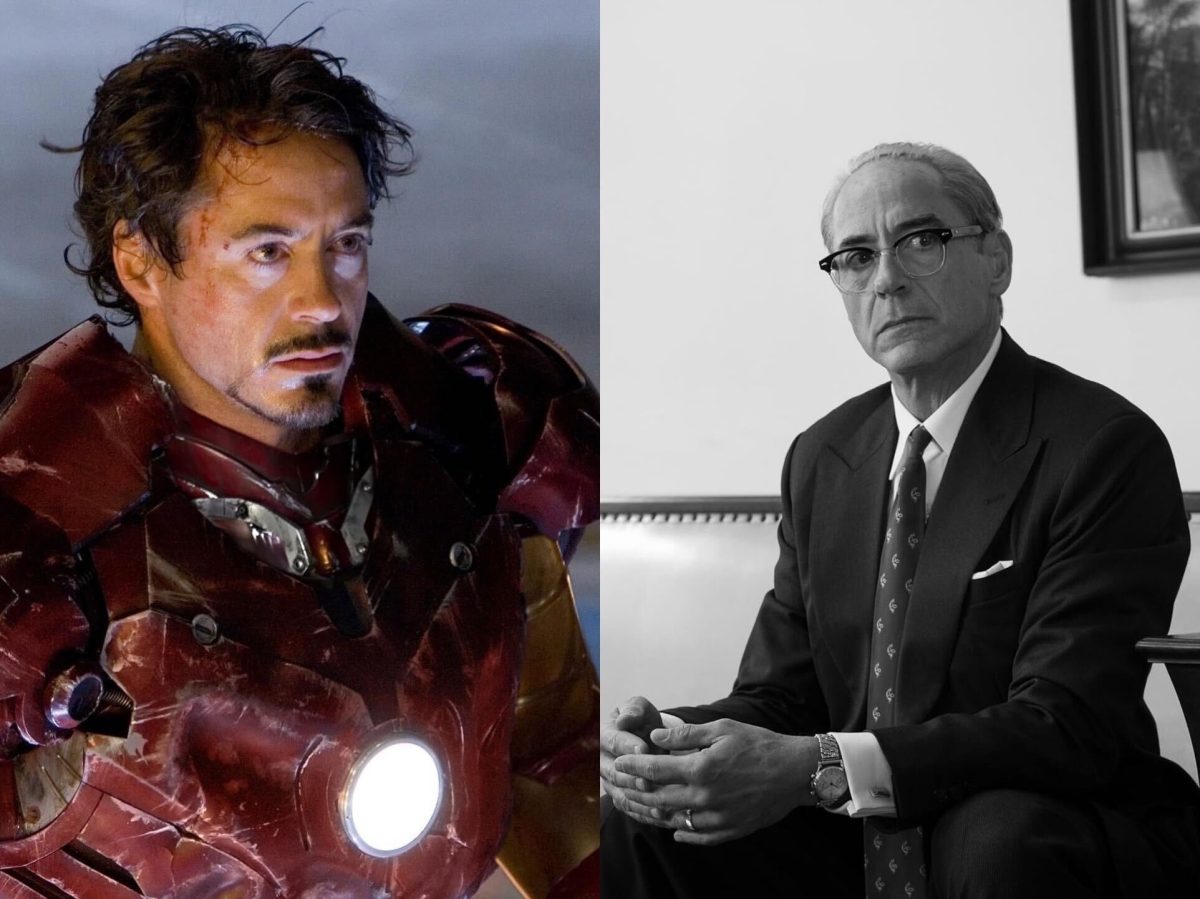Robert Downey Jr. is a frontrunner for an Oscar this year, and many film aficionados will attribute this to “Oppenheimer” being his return to legitimate acting.
Downey’s time as Iron Man in the Marvel Cinematic Universe is a topic which has permeated his entire “Oppenheimer” awards season — he even addressed the red-and-gold elephant in the room during his BAFTA film awards acceptance speech. This attitude toward Downey’s more than 10 years helming record-breaking box-office successes is indicative of a larger pattern in the film industry today, as franchise movies are constantly brushed off as not being real cinema despite their potential for truly nuanced storytelling.
A conversation about the legitimacy of franchise films cannot occur without mentioning when NYU alum and acclaimed filmmaker Martin Scorsese deemed the MCU as “not cinema” in a 2019 interview with Empire Magazine.
“Honestly, the closest I can think of them, as well-made as they are, with actors doing the best they can under the circumstances, is theme parks,” Scorsese said. “It isn’t the cinema of human beings trying to convey emotional, psychological experiences to another human being.”
Brushing off the franchise film is not a modern phenomenon by any means. Projects like the original “Star Wars” movies have been belittled due to their “dehumanizing” natures, “lousy actors,” and heavy uses of special effects. Interestingly, despite film reviewer John Simon saying in that criticism that these films are “90 percent special effects,” practical effects make up much of the original “Star Wars” trilogy.
Sometimes, fans will jump on the anti-franchise film train before the movie in question even releases. On Feb. 26, following a recent announcement that Florence Pugh began filming for Marvel’s “Thunderbolts,” Alex Coleman posted on X, “To go from ‘Oppenheimer’ and ‘Dune 2’ to ‘Thunderbolts’ is insane.”
Journalist Alden Diaz responded to Coleman, noting how critics of the franchise film “would have actual heart attacks if [they] witnessed the careers of some legitimate legends in real time,” describing how they will often ebb and flow between more serious pictures and more lighthearted ones.
Coleman’s mention of “Dune: Part Two” next to “Oppenheimer” is particularly interesting, as “Dune” itself has become a franchise — and a successful one, at that. While the two are not identical by any means, the “Dune” franchise and Marvel have some undeniable similarities. Like Marvel, the “Dune” movies are film adaptations of written works with plots extending over multiple movies, taking place in science fiction worlds and telling action-packed stories. Big-name celebrities, including Zendaya and Dave Bautista, even appear in both. But, one of these is considered cinema, while the other is relegated to being something less than.
This is not to imply that every franchise film is worthy of a best picture nomination, or to even be considered in the same league as “Dune.” “Madame Web,” for instance, is not fine art. The “Star Wars” prequel trilogy is not a paragon of storytelling. Many die-hard “Percy Jackson and the Olympians” fans like to pretend the movies do not even exist. Still, the same can be said for many non-franchise films too. Need I mention “The Room” or “White House Down?”
But, for every “Morbius” there is a “Black Panther,” as in, a deeply profound reflection of resource utilization, colonialism and assimilation. Nothing demonstrates its status as a truly spectacular piece of nuanced, poignant film more than the fact that it was the first superhero movie to see a best picture nomination.
There definitely have been a few other franchise or franchise-adjacent films considered closer to what people might call “real cinema,” and like “Black Panther,” have seen that attitude reflected in Oscar decisions. Last year’s winner, “Everything Everywhere All at Once,” is a multiverse story — one of the story types utilized most often in the franchise films of the past couple years, with the MCU’s current Multiverse Saga, the beloved “Spider-Man: Into the Spider-Verse” and this summer’s not-so-beloved “The Flash.”
“Top Gun: Maverick,” which was a cameo-filled sequel featuring many sequences straight out of the first movie, as Steven Spielberg put it, “saved Hollywood” following the height of the pandemic. It was a best picture nominee in 2022, despite having many of the same fan service-filled, special effect heavy elements many criticize the MCU for utilizing.
Even this year, we have “Barbie.” It’s an aesthetically pink and girly summer blockbuster about a doll that does not shy away from its corporate origins, and actually pokes fun at them, through a meaningful exploration of gender and identity. Thanks in part to the phenomenon that was Barbenheimer, a lot of people who may have overlooked how poignant “Barbie” could be ended up seeing it in theaters, and it was a resounding success.
I’m not asking you to like every franchise film. Take it from someone who has seen every movie in the MCU at least once: Not all of them are bangers. But that doesn’t mean that franchise movies — yes, even the MCU’s — do not have the capacity to tell nuanced stories.
And sure, Iron Man is objectively a different type of role than Lewis Strauss is. Even as a massive Marvel fan, I can recognize why one gave Downey an Oscar nomination and the other did not. But I refuse to believe that, as Iron Man, Downey was not really acting in real movies.
Scorsese can complain all he wants. That doesn’t change the fact that “Iron Man” sits on the Library of Congress’ National Film Registry of “culturally, historically or aesthetically significant” movies, right alongside “Goodfellas.”
Contact Gillian Blum at [email protected].

























































































































































